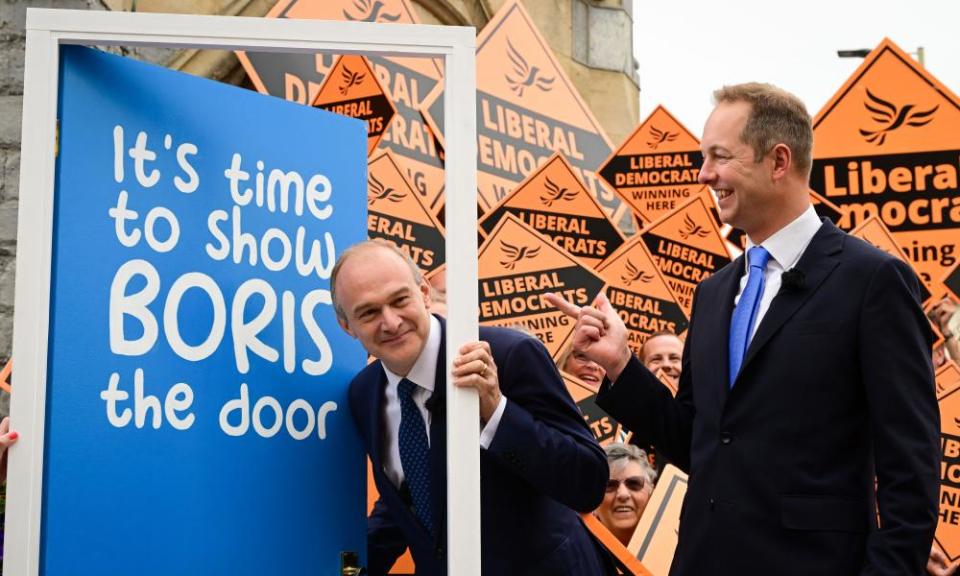Could tactical voting save Britain from the Tories?

In reference to Peter Kellner’s article (A harsh lesson for the Tories: you can’t outrun tactical voting, 25 June), I must challenge his assertion that Labour supporters “accept that Ed Davey and the Lib Dems have moved on from the days when they voted for Tory austerity measures”. As a Labour party member, I do not hold such a view, nor do any other party members of my acquaintance. We do not forget that Davey was a member of the cabinet that cut essential public services and depleted the health service so that the impact of the subsequent Covid pandemic was exacerbated.
We also recognise that his party’s political opportunism makes it a potential partner in a future Tory alliance, noting that it has an established track record for this in local government, as in the case of Leeds city council between 2004 and 2010.
John Lynch
Leeds
• As usual, Peter Kellner makes a persuasive case. The problem is with the word “could”. As he points out, “on a straight national swing” the Tories could end up with as many as 344 seats or as few as 285 – depending on the effectiveness of tactical voting. This is a reflection of a thoroughly undemocratic voting system and is, unfortunately, not an isolated example. In 2005, Labour under Tony Blair won a comfortable majority on just over 35% of the vote. Under the much maligned Jeremy Corbyn, Labour lost the 2017 election having achieved 40% in the general election.
If the opposition parties were to agree on electoral reform, there might just be the basis of an effective alliance to remove the Conservatives from office. Without it, the Tories could remain in power for years to come, despite never winning anything near a majority of the popular vote.
Declan O’Neill
Oldham, Greater Manchester
• Boris Johnson has suggested that the cost of living crisis was to blame for the byelection defeats, not his conduct. It was not the cost of living, it was the cost of lying.
David Smith
Couloumé-Mondebat, Gers, France
• Have an opinion on anything you’ve read in the Guardian today? Please email us your letter and it will be considered for publication.

 Yahoo Movies
Yahoo Movies 